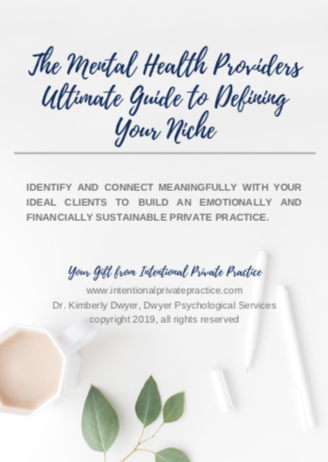Hey friends, we made it to 2021! What a year 2021 was– a wild, scary, “unprecedented” ride. While I don’t expect a massive cosmic reset button to be hit now that we’re in 2021, I am looking forward to things returning mostly to normal in the relatively near future. In the meantime, let’s turn our attention to something we helpers and healers desperately need… essential self care.
I’m not talking about a yoga class followed by a smoothie, though that sounds lovely. You won’t find your essential self care in a 20 minute meditation–though you should certainly do that if it calls to you. A night out with your besties, massages, a soak in the hot tub, a weekend at a luxury hotel (as if we could do most of those things mid-pandemic)… those are all restorative practices and great “punctuation” on your self care. But to get into totally radical self care–the kind that is going to restore you to hold space and manage emotions calmly in your work while the world is burning down around us–you’re going to have to dig deeper.
The things that are really going to protect you against burn out are not those special treats that you may indulge in occasionally, and they are likely not the once in a while mind-body practices like yoga or meditation if they are not used regularly. You can’t engage in essential self-care by scheduling thirty minutes to an hour each Saturday. Truly radical self care starts with understanding your values to establish your needs, finding balance and boundaries in the various aspects of our lives, and engaging in consistent, actionable practices that fill your cup.
Values
If you’ve been following along at Intentional Private Practice, you’ll know I start most of my work with values. In my conceptualization of the psyche, informed heavily by MB-CBT and ACT, values become the inner voice that guides us towards what is just right for us, right now. Sometimes that voice is loud and easy to hear, and sometimes it is overshadowed by the chattering monkey-mind, the never ending to-do list, and the standards of society to which we consciously or unconsciously subscribe. When we slow down and listen deeply, our values–which you might conceptualize as your inner wisdom or your soul–will help you decide what you truly need and where to invest your energy. Align your actions with your values? That’s the ticket to a sense of contentment, restoration, and balance. Ignore your values in service of someone else’s values, or even your own competing values, and you’ll likely feel cranky, grumpy, and depleted. That’s the sure fire way to purchase a one way ticket to Burn Out Junction.
How do you get clear about your values with regards to self-restoration? Try this exercise: sit quietly, perhaps taking some mindful breaths. Once you are settled, cast your memory to some recent times that you felt content and grounded. Try to develop a rich image of the situation or situations: what you saw, heard, smelled, felt, and tasted. Drawing in your senses helps you to enrich your memory and be as present to it as you can be. Once you’ve developed a rich memory, try to notice your thoughts and emotions. Now, open your eyes and jot down on a piece of paper how you felt and what you were thinking. Use this for clues as to how your values were showing up in those moments.
For example, if you are recalling a memory of hosting a well orchestrated celebration with friends and family, you may be tapping into values of accomplishment, social competency, connection, and love. If you are recalling a quiet hike in the woods by yourself, this could connect with values related to appreciation and/or conservation of the environment, fitness, peacefulness, and solitude. Does your memory recall a time of absorption in a favorite hobby, or even in work? Then you may be recalling moments when you fulfilled values of creativity, flow, joy, and accomplishment. Memories of helping others could reflect values of compassion, charity, career competency, and service.
Not sure how to jump from memory to values? You might look at a list of values (I have one in my workbook, or you can google to find a number of lists). Tick off the values that apply to your memory as you read through. Once you’ve brainstormed a list of values that tend to be restorative and fill your cup, you can start compiling a list of activities in which you align those values.
Balance
The next factor in the radical self care equation is balance. This refers to balance in all areas of your life. You might think of this as tending to each of the competing life demands and roles in the way that is best suited to them, while leaving space for other roles and demands. Typical areas of demand include work, family/friends, self, love, leisure/recreation, fitness/health, home, community/contribution, finances, and spirituality. There are times when, by necessity, the bulk of our energy goes into one area at the expense of others. Job promotion or work crisis? Career may be taking most of your resource. Young children at home and family members not available to support you with childcare? Family may be prioritized. Even when some areas of our life are super high in need, we can still find small ways to tend to our other needs and authenticate those values. We can think of balance in terms of tending to those various factors in our life in the way that fits us best in our current situation–prioritizing what must be prioritized but still validating and trying to find actions that align with our other needs.
Balance also comes through balancing which values we are honoring in which situations. It’s totally reasonable that you will have some values that are not restorative, but, when fulfilled, bring you great joy. You may value your professionalism, economic sustainability, career competency, and advancement. By all means, fill up those value-cups through your work when you’re able. However, that probably doesn’t mean you need to work all the time. In fact, engage in restorative values practices outside of your professional tasks and you’ll likely find you enjoy fulfilling your career values, at work, even more. In developing your list of radical self care practices, stay focused on the unique set of values which feel truly restorative to you at this point in your life to balance out the values ticked off by work.
Our boundaries can teach us a great deal about our need to respect balance in our lives, if we listen to them. As I said above, conflict within our own values or between our values and those of another can lead to discomfort. When this happens, our normal inclination is often to avoid or make the discomfort stop. Sometimes we do this by stuffing down our own needs and catering to others’ needs in order to avoid conflict. Listening deeply to what is best for us at a given point in time can illuminate the right actions, and asserting our needs is often easier than we anticipate it will be. Whenever we say yes to one thing, we are saying no to something else, so allow wisdom and discernment to inform where you choose to allocate your limited energy and resources.
Consistency
I went on a great weekend getaway in September (one of the few times this year when my area was relatively safe for travel). I ate nutritious and interesting meals, enjoyed solitude as well as companionship, went on hikes, meditated, practiced yoga, enjoyed arts and crafts, had a massage and facial, and soaked in natural hot springs while gazing on two separate mountain ranges, one where the sun rose each morning and one where the sun set. It was glorious. And then I returned to life as usual. (insert sad trombone noise) While my getaway fulfilled values of connection, solitude, fitness, spirituality, appreciation of the environment, and physical care, it did not necessarily translate into every day practices to carry me through the rest of the week, month, and year.
Commitment to consistent self care is a core component of radical self care. While the restorative weekend away might jump start a firm commitment to self care, it will not necessarily translate into daily practices. To engage in radical self care, start with the values you already defined, explore the possible activities that allow you to authenticate these values in your behavior, and begin choosing the activities you’d like to try. You might find some that can be done on a daily or near-daily basis: journaling, starting the day with a quiet cup of tea and lighting a candle, walking in nature, talking with a friend. Others might happen a few times a week, such as exercise, lengthy meditation or yoga practices, or reading a book. Some lengthier activities might be once a week or a few times a month: physical self care activities like massages, executing a fancy meal if you’re a foodie, engagement in a favorite hobby, volunteering in your community, spiritual pursuits, or lengthy outdoor activities.
Once you have a few ideas for daily, weekly, and semi-monthly or monthly self care activities, plan out exactly when–within reason–you’ll act on these ideas. In my world, if it isn’t written in my planner, it’s not happening. You’ll then use your planner as motivation to engage in the behavior. Explore what gets in the way of taking action on these behaviors. These obstacles and barriers that you uncover to fully aligned action will be helpful in problem solving your self care plan.
A great way to start 2021 with consistent, balanced, values-driven self-care is through my new coaching group offering: Essential Self-Care for Helpers and Healers. We’ll meet for eight, one-hour sessions from February through April (front loaded so we can get started on the right paths, then tapered so the support continues across the three months). The group will teach and refresh your self care skills and help you implement a self-care strategy with consistency, build daily sacred care rituals that are practical for your life, and problem solve barriers to self-care. Supported by like minded helpers and healers, we’ll work together to tailor the self-care strategy that is just right for you. Find out more, here. I hope you’ll join us!


